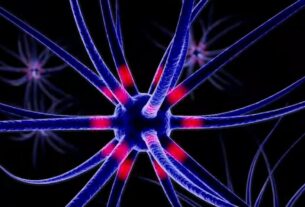If you’ve read much about psychology or evolution, it’s easy to get the idea that humans are hardwired to act as if the world revolves around themselves.
But my team’s new study joins a growing body of research showing that humans are highly attuned to other people and what they think. Indeed, our findings suggest people are sometimes so sensitive to the beliefs of others that it can challenge their own beliefs about events they have witnessed.
A common claim in psychology is that humans are egocentric creatures, fundamentally biased towards our own beliefs. Indeed, one explanation of why children until around the age of four don’t readily understand that other people can have different beliefs to them, is that ignoring their own beliefs is just too difficult for pre-schoolers.
Of course, adults understand that others can have different beliefs to our own. Yet we sometimes make mistakes in straightforward social situations, appearing to wrongly assume that others share the same beliefs as we do, even when it is clear they do not.
Many psychologists interpret these mistakes as evidence that humans of all ages are “egocentrically biased”, because we have a a default assumption that others share the same beliefs as us. My team’s latest research, however, tells a different story.
Being sensitive
Adult participants in our study viewed videos in which one character moved a set of keys between two boxes while a second character, the “witness”, watched.
In some videos, the witness did not see the final movement of the keys. By the end of these particular videos, the participant correctly believed the keys were in their final location, whereas the witness incorrectly believed that the keys were elsewhere. In these critical cases, the participant and the witness had different beliefs.
Every day, we experience situations like this, where others do not share the same beliefs about the world as we do.
SG Shot/Shutterstock
Thinking about the beliefs of others, when they are different from our own, may require ignoring our own beliefs. But if humans are egocentrically biased, then ignoring our own beliefs should not be easy.
To test this, we asked participants a question after every video. Some questions were about where the witness thinks the keys are (“belief” questions), while others were about the final location of the keys (“reality” questions).
Participants took the questions on a computer and used a mouse to choose from two answers. For some questions, the correct answer reflected the witness’s belief. For others, the correct answer reflected the reality as witnessed by the participant.
We tracked how participants moved the mouse when they answered the questions, to give us an idea for how attracted they were to each option. If adults are egocentrically biased, then they should show an attraction towards answers reflecting their own beliefs.
In other words, in cases where the participant and witness had different beliefs, when answering belief questions we would expect participants to initially move the mouse towards the incorrect answer (reflecting their own belief) before answering correctly. Whereas for reality questions, they should move straight for the correct answer, reflecting their own belief.
But this is not what we found. In our first study, with 76 participants, there was no evidence that participants were attracted to their own beliefs when answering the belief questions.
What’s more, when answering reality questions, participants showed the opposite of an egocentric bias. They showed an attraction towards answers reflecting the witness’s incorrect belief. We carried out two further studies, with another 76 participants each, and found similar results.
Our data suggests that our participants couldn’t help but consider the belief of the witness, even when they knew it to be wrong.
Human nature
Other studies have found evidence for similar effects. What another person sees or believes appears to affect what participants report they can see, believe or remember about a situation. Indeed, over the last decade, a large volume of research has shown how our cognition is influenced by the presence of others.
What we don’t know is why adults sometimes appear to be egocentric, and in other situations show such sensitivity to others. But we do know that the claim that humans are fundamentally egocentric does not match the data from our and other studies.
This offers a perhaps more hopeful account of human nature. We are not a mere collection of individuals trapped in our own heads, but a community of ultrasocial beings who influence, and are influenced by, each other.



